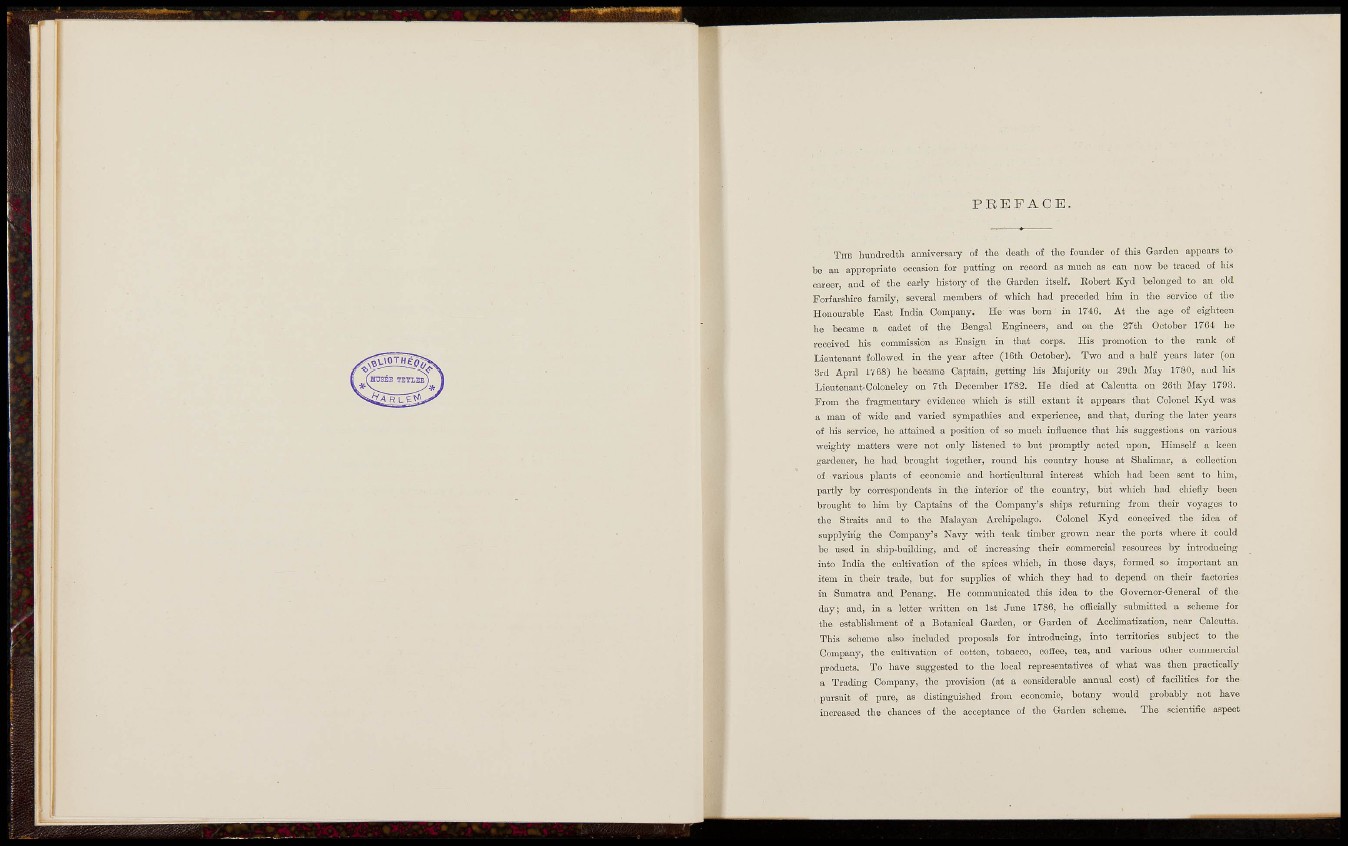
P R E F A C E .
TUE huadredth auuivcrsaiy of the death of the founder of this Garden appears to
be an appropriate occasion for putting on record as much as can now be traced of his
career and of the early liistoiy of the Garden itself. Robert Kyd belonged to an old
Forfarsliire family, several members of which had preceded him in the service of tho
Honourable East India Company. He was bom in 1746. At the age of eighteen
he became a cadet of the Bengal Engineers, and on the 27th October 1764 he
received Ins commission as Ensign in that corps. His promotion to the rank of
Lieutenant followed in the year after (16th October). Two and a half years later (on
3rd April 1768) he became Captain, getting his Majority on 29th May 1780, and his
Lieutenant-Colonelcy on 7th December 1782. He died at Calcutta on 26th May 1793.
I'^rom the fi-agmentaiy evidence which is still extant it appears that Colonel Kyd was
a man of wide and varied sympathies and expcnence, and that, during the later years
of his service, he attained a position of so much influence that his suggestions on various
weighty matters were not only listened to but promptly acted upon. Himself a keen
gardener, he had brought together, round liis country house at Shalimar, a collection
of various plants of economic and horticultural interest which had been sent to him,
partly by con-espo]idents in the interior of the countiy, but which had chiefly been
brought to hnn by Captains of the Company's ships returning from their voyages to
the Straits and to the Malayan Archipelago. Colonel Kyd conceived the idea of
supplying the Company's Navy with teak timber grown near the ports where it could
be used in ship-building, and of increasing their commercial resources by introducing
into India the cultivation of the spices which, in those days, fonned so important an
item in their trade, but for supplies of wliich they had to depend on their factories
in Sumati-a and Penang. He communicated this idea to the Governor-General of the
day; and, in a letter written on 1st June 1786, he officially submitted a scheme for
the estabhshment of a Botanical Garden, or Garden of Acclimatization, near Calcutta.
This scheme also included proposals for inti'oducing, into territories subject to the
Company, the cultivation of cotton, tobacco, coffee, tea, and various other commercial
products. To have suggested to the local representatives of what was then practically
a Trading Company, the provision (at a considerable annual cost) of facilities for the
pursuit of pm-e, as distinguished from economic, botany would probably not have
increased the chances of the acceptance of the Garden scheme. The scientific